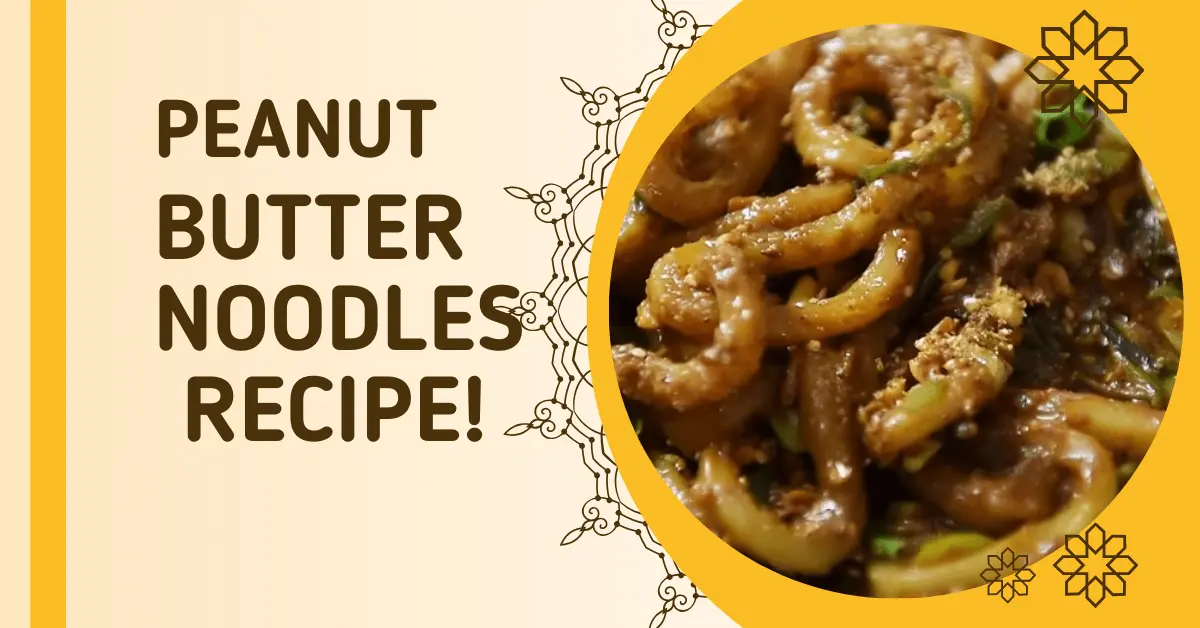This Crab Salad for Sushi is the best combination of creamy, savory, and slightly tangy flavors, developing a versatile filling that elevates any sushi roll. Made with Japanese mayo for a richer, umami taste and balanced with suggestions of lemon juice, toasted sesame oil, and soy sauce, this crab salad is quick to put together and brings true Japanese-inspired flavors to your homemade sushi. Whether you’re a sushi fanatic or just trying out something new, this recipe makes it clear to acquire restaurant-fine sushi fillings at home.
Not only does this crab salad make an outstanding addition to sushi rolls, but it could also be enjoyed as a tasty appetizer or aspect dish. It’s filled with protein from imitation crab, wholesome fats from sesame oil, and a dash of nutrition C from lemon juice, making it a nourishing yet low-calorie option. Prepare it an afternoon or in advance to streamline your sushi-making procedure, and save it inside the fridge to let the flavors meld perfectly. Simple, scrumptious, and flexible, this Imitation crab salad is sure to come to be a favorite for your sushi repertoire.

Understanding Crab Salad and Its Role in Sushi
Crab salad is a pivotal element in the art of sushi making, offering a creamy and savory flavor that complements the delicate taste of rice and seaweed. On the cutting board, chefs mix shredded imitation crab with mayonnaise and a dash of seasoning, crafting a dish that perfectly balances the sushi’s umami profile. The versatility of crab salad allows for it to be tailored to personal tastes – whether one prefers a hint of spice or a sweeter palate.

Origin of Crab Salad for Sushi
Japanese Sushi Culture and Innovation
The Crab Salad for Sushi recipe is rooted in Japanese culinary traditions, particularly in sushi-making. Sushi, originally a way to preserve fish by fermenting it with rice, evolved over centuries into the art form we know today, with fresh fish and other ingredients served atop or rolled into vinegared rice. As sushi became popular worldwide, Japanese chefs began experimenting with new ingredients to appeal to a broader audience. This adaptation led to innovative fillings like kani salad (a crab-based salad) which became popular in sushi rolls, especially in the United States and other Western countries.
American Influence and the Use of Imitation Crab
In the 1970s, imitation crab—also called “krab” or surimi—won recognition instead of actual crab meat due to its affordability and mild taste. This component was extensively utilized in American sushi rolls, such as the iconic California Roll, which functions as imitation crab, avocado, and cucumber. Crab Salad for Sushi was born as a smooth-to-prepare, flavorful filling that mixes Japanese flavors like sesame oil and Japanese mayonnaise, aligning with the flavor options of Western sushi lovers. This fusion has made crab salad a loved filling in sushi rolls, specifically in American-Japanese cuisine, and it’s now generally found in sushi restaurants around the sector.
What is Sushi Crab Salad?
Sushi Crab Salad is a creamy, flavorful filling made with shredded imitation crab (also known as surimi), Japanese mayonnaise, and seasonings like lemon juice, sesame oil, and soy sauce. It’s primarily used as a filling in sushi rolls, such as California rolls, and as a topping for sushi bowls and hand rolls. The salad has a slight seafood flavor that mixes beautifully with the wealthy, umami notes of Japanese mayo and toasted sesame oil, adding a creamy texture and savory flavor to any sushi dish.
Versatile and Easy to Use:
With its soft, spreadable texture, sushi crab salad is ideal for sushi fillings, making it easy to layer over rice or incorporate into rolls without making them too bulky. This simple yet flavorful mixture has become a staple in sushi restaurants worldwide, particularly in fusion and Western sushi styles, where it brings a familiar yet unique flavor profile. Sushi crab salad is quick to prepare, making it a convenient option for both home cooks and sushi chefs.
Storing Leftovers and Maintaining Freshness
To ensure the freshness of leftover crab salad sushi rolls, prompt refrigeration is essential. Ideally, the rolls should be covered with cling film and placed in an airtight container before being stored in the refrigerator, as this process helps maintain the rolls’ moisture and prevents them from absorbing any unwanted odors. Adhering to this storage method sustains the flavor integrity of the sushi for a short duration, typically no more than 24 hours, after which the quality may begin to diminish.
For those seeking to preserve the freshness of crab salad designated for future sushi creations, separating the components before storage is advisable. The crab salad itself should be refrigerated in a sealed container, while the nori remains at room temperature in a dry place. This technique prevents the nori from becoming chewy and the salad from turning soggy, thus retaining the individual textures and flavors that are paramount to an exceptional sushi experience when reassembled.
Health Benefits:
- Rich in Protein: Imitation crab offers an amazing source of protein that is important for muscle restoration and boom.
- Heart-Healthy Fats: Sesame oil consists of monounsaturated and polyunsaturated fats that help coronary heart fitness.
- Low in Calories: This crab salad is a low-calorie sushi choice, best for the ones watching their weight even as playing sushi.
- Boosts Immunity: Lemon juice gives a small nutrition C increase, assisting immune fitness.
Enjoy this versatile crab salad in sushi rolls, hand rolls, or even as a spread on rice crackers!
Serving Size – Crab Salad for Sushi
- 1 Fully Loaded Sushi Roll: If you choose a roll crammed solely with crab salad, one batch will be enough to fill a single roll with a beneficial amount of filling.
- 2 Sushi Rolls with Additional Fillings: If you’re adding different elements like cucumber and/or avocado to your rolls, one batch of crab salad can be stretched to fill two rolls.
- 2 Specialty Roll Toppings: Use one batch of top sushi rolls, along with a layer of crab salad for extra taste and texture on the top.
- 12 Bite-Sized Pieces (Crispy Rice or Gunkan): One batch is also sufficient to top approximately 12 small, bite-sized sushi portions, together with crispy rice bites or gunkan-style sushi.
Nutritional Information (per batch)
| Nutrient | Amount per Batch |
| Calories | ~190 kcal |
| Protein | 5g |
| Carbohydrates | 5g |
| – Fiber | 0g |
| – Sugars | 2g |
| Fat | 16g |
| – Saturated Fat | 2.5g |
| Sodium | 600mg |
Ingredients & Substitutions
Imitation Crab Stick
Understanding Imitation Crab:
What is an Imitation Crab? Imitation crab is a seafood product made usually from fish, typically cod, that is processed to imitate the feel and appearance of real crab meat.
Comparison to Hotdogs: While it might sound unappealing, imitation crab sticks can be concept of as seafood equal to hotdogs.
Cultural Significance: Imitation crab isn’t always simply “fake crab”; it has a wealthy record and is enjoyed in both Japanese and Western cuisines.
Where to Find It: You should buy imitation crab at most essential grocery stores in the U.S. However, Asian grocery shops regularly have a wider choice.
It can be categorised as krab, kanikama, surimi, or kamaboko.
Substitutions: If you pick, you may replace an equal weight of cooked real crab meat for imitation crab.
Dietary Considerations: Note that crab sticks may not be gluten-free, so always check the packaging if you have dietary restrictions.
Toasted Sesame Oil
Flavor Profile: Toasted sesame oil, also known as roasted sesame oil, boasts a rich umami (savory) and nutty flavor, making it a critical aspect of homemade sushi.
Production: This oil is derived from toasted sesame seeds, resulting in a much better taste in comparison to regular sesame oil.
Labeling: Look for oils explicitly labeled as “toasted,” as not all manufacturers differentiate between toasted and ordinary sesame oil.
Availability: You can discover toasted sesame oil at most primary grocery shops in the U.S., Asian grocery shops (which regularly offer a much wider selection), or online.
Japanese Mayonnaise
Distinct Difference: Japanese mayo differs extensively from the typical mayonnaise most Americans are acquainted with. While American mayo is made by using emulsifying whole eggs, Japanese mayo uses the most effective egg yolk.
Flavor and Texture: This most effective technique outcomes in a richer, creamier taste and texture that can greatly enhance your dishes.
Where to Find It? You can frequently locate Japanese mayo in U.S. Grocery stores—look for it within the international aisle. It’s additionally comfortable to be had at Asian grocery shops or online.
Recommended Brand: I recommend the Kewpie brand for its authentic taste and quality.
Substitution Notes: While you may use ordinary mayo in a pinch, keep in mind that it will modify the taste and texture of your recipe.
Lemon Juice
For a satisfactory taste, use clean-squeezed lemon juice in your recipe. However, in case you don’t have any reachable, bottled lemon juice works just excellent and is perfectly suited!
Soy Sauce
Any Soy Sauce Works: You can use any soy sauce you have reachable for this recipe. I commonly go along with Kikkoman, which is without difficulty discovered at most principal grocery shops. Here are a few options: normal, low sodium, and gluten-loose.
Stocking Up: If you cook dinner with soy sauce often, recall shopping for a larger jug—just like the 64 oz size I usually purchase. This may be more within your means!
Choosing the Right Soy Sauce: While there are numerous interesting types of soy sauce available, their specific flavors may not shine on this unique recipe. It’s satisfactory to reserve the ones for dipping sauces and stick with a reliable staple like Kikkoman.
Avoid Substituting Ponzu Sauce: I don’t propose using Ponzu sauce in maximum recipes. The citrus in ponzu can start to prepare dinner raw seafood, just like the technique of ceviche, so it’s nice to avoid prolonged touch or marinating with it.
Best Practices for Making Delicious Crab Salad
- Choose Japanese Mayo: Japanese mayonnaise, like Kewpie, has a richer, creamier texture and an umami taste that complements the crab salad. It’s much less tangy than American mayo, so in case you’re using American mayo instead, recall including a pinch of sugar for stability.
- Use Fresh Lemon Juice if Possible: Freshly squeezed lemon juice provides a brighter, more energizing flavor as compared to bottled lemon juice, which may have a barely processed flavor.
- Shred the Crab Sticks Properly: Roughly chopping and then shredding the crab sticks with a hand or with a fork enables to create the suitable texture for sushi fillings, giving it that traditional “flaky” look. Avoid the use of a meal processor as it can flip the crab right into a delicate paste.
- Control the Sauce Amount: When including the crab salad in sushi rolls, use a fork to scoop out the shredded crab while leaving some sauce in the back. This prevents the rolls from becoming soggy and helps maintain a neat, clean-to-roll texture.
- Make Ahead for Convenience: You can put together the crab salad an afternoon or two earlier and keep it in a hermetic field within the refrigerator. This lets the flavors meld, making the salad even more scrumptious when it’s time to collect your sushi.

Crab Salad for Sushi
Ingredients
- 3 imitation crab sticks (krab sticks),approximately 6 inches long each
- 3 tbsp Japanese mayo (Japanese mayonnaise has a creamier, richer flavor than American mayo)
- 2 tsp lemon juice (fresh or bottled)
- 1.1/2 tsp toasted sesame oil
- 1 tsp soy sauce
Instructions
Prepare the Sauce:
- In a small bowl, integrate the Japanese mayo, lemon juice, sesame oil, and soy sauce. Mix until smooth.
Prepare the Crab Sticks:
- Roughly chop the imitation crab sticks into approximately 1 cm chunks (or favored length). Using your palms or a fork, shred the chunks to create a flaky texture.
Combine Ingredients:
- Add the shredded crab to the sauce and blend until fully blended.
Storage Tips:
- Store the crab salad in an hermetic container in the fridge until ready to use. This salad may be made one to 2 days ahead for easy sushi coaching.
When Using in Sushi Rolls:
- Use a fork to scoop the combination onto sushi rice, leaving extra sauce behind for excellent effects. This enables save you the sushi roll from becoming soggy.
Notes
Final Thoughts
Crab Salad for Sushi isn’t easy to put together however also exceptionally flexible, permitting you to customize it with additional elements like avocado or cucumber to beautify each taste and texture. Remember to flavor as you cross, adjusting the seasonings to suit your private preference. A properly balanced taste profile is key to growing a scrumptious salad that enhances your sushi perfectly. If you pick to make the salad ahead of time, keep it in an airtight field within the fridge. The flavors will meld beautifully, making it even tastier whilst it’s time to gather your sushi.
Crazy Delish Garlic Chili Noodles Recipe-2025

Peanut Butter Noodles Recipe – A Creamy & Spicy Delight! – 2025

Best Marinated Chicken for Tacos & More – Juicy & Flavorful Recipe – 2025

Best Marinated Chicken for Tacos & More – Juicy & Flavorful Recipe – 2025

Irresistible Miso Butter Lobster Rolls with Chili Aioli -2025




